Student filmmaker in Switzerland highlights plight of Afghan girls
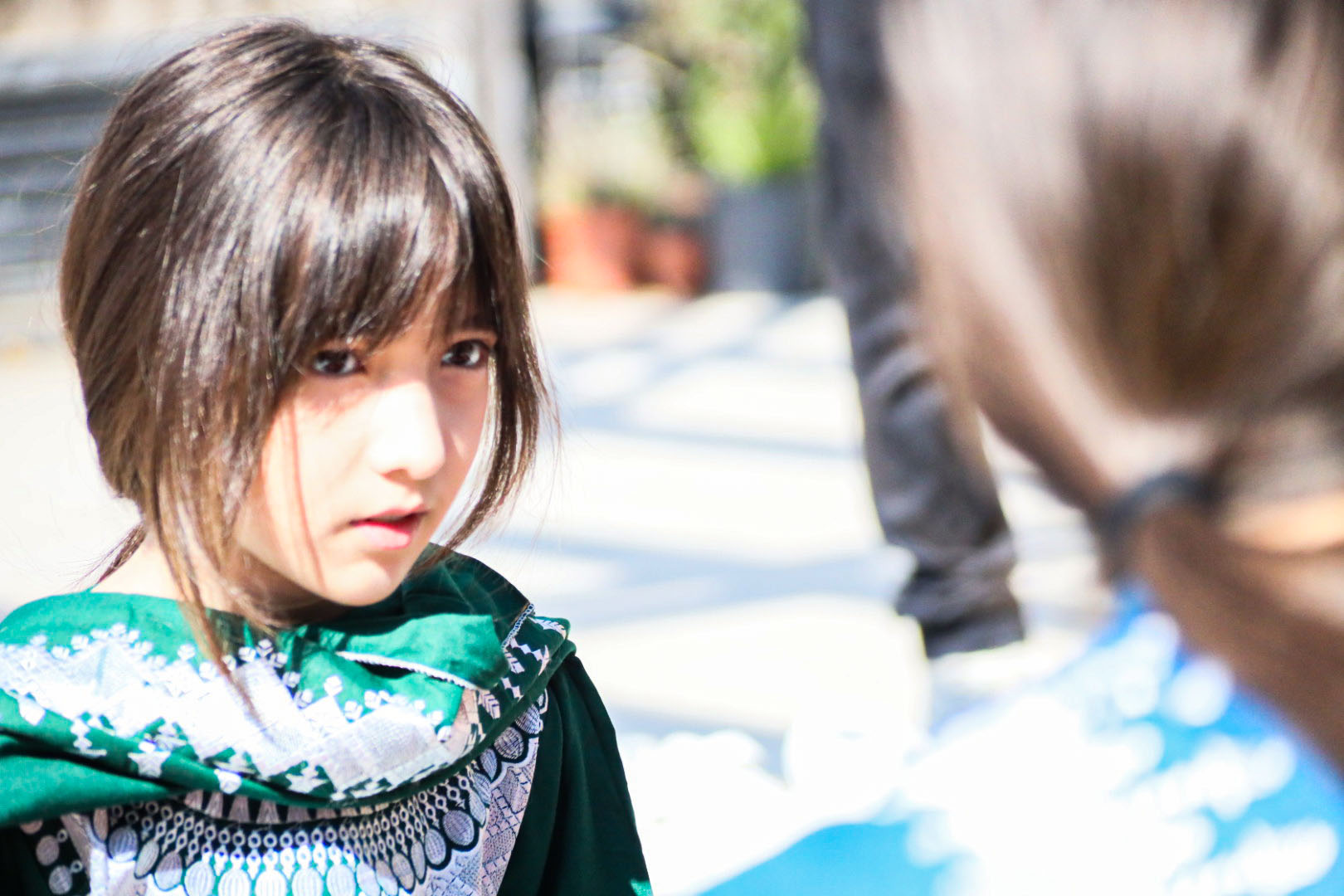
Girls in Afghanistan are forbidden from going to school beyond the sixth grade. A film student in Switzerland has turned his lens on the subject as a way to fight for girls’ rights – and to warn of the dangers of recognising the Taliban.
It took just two years for Afghanistan to become the only state in the world to ban girls and women from secondary school and higher education. The erasing of this and most other basic rights for women and girls by the Taliban since their takeover in August 2021 has caused anger beyond the country’s borders.
For Ahura Ehsas, an Afghan student at the Ecole de Cinéma in Geneva, the sense of desperation for his compatriots back home reached its peak in September 2022: that’s when a suicide attackExternal link at a private college in Kabul killed dozens of people and injured many more, most of them female students.
“That had a big impact on me,” he recalled. “I had nightmares afterwards.”
Already a poet and short-story writer before he started film school, Ehsas decided to put his feelings down on paper and wrote a script for a short film. It’s the story of two sisters: one whose dream of studying psychology ends when she is killed in a Taliban attack, and the other, who goes on a mission to fulfil her dead sister’s dream. He gave it a title – Tamanna and Tabassum, proper names in Persian that mean “a wish and a smile” – and set out to show that girls are both the true enemy of the Taliban and the real heroes of Afghanistan.
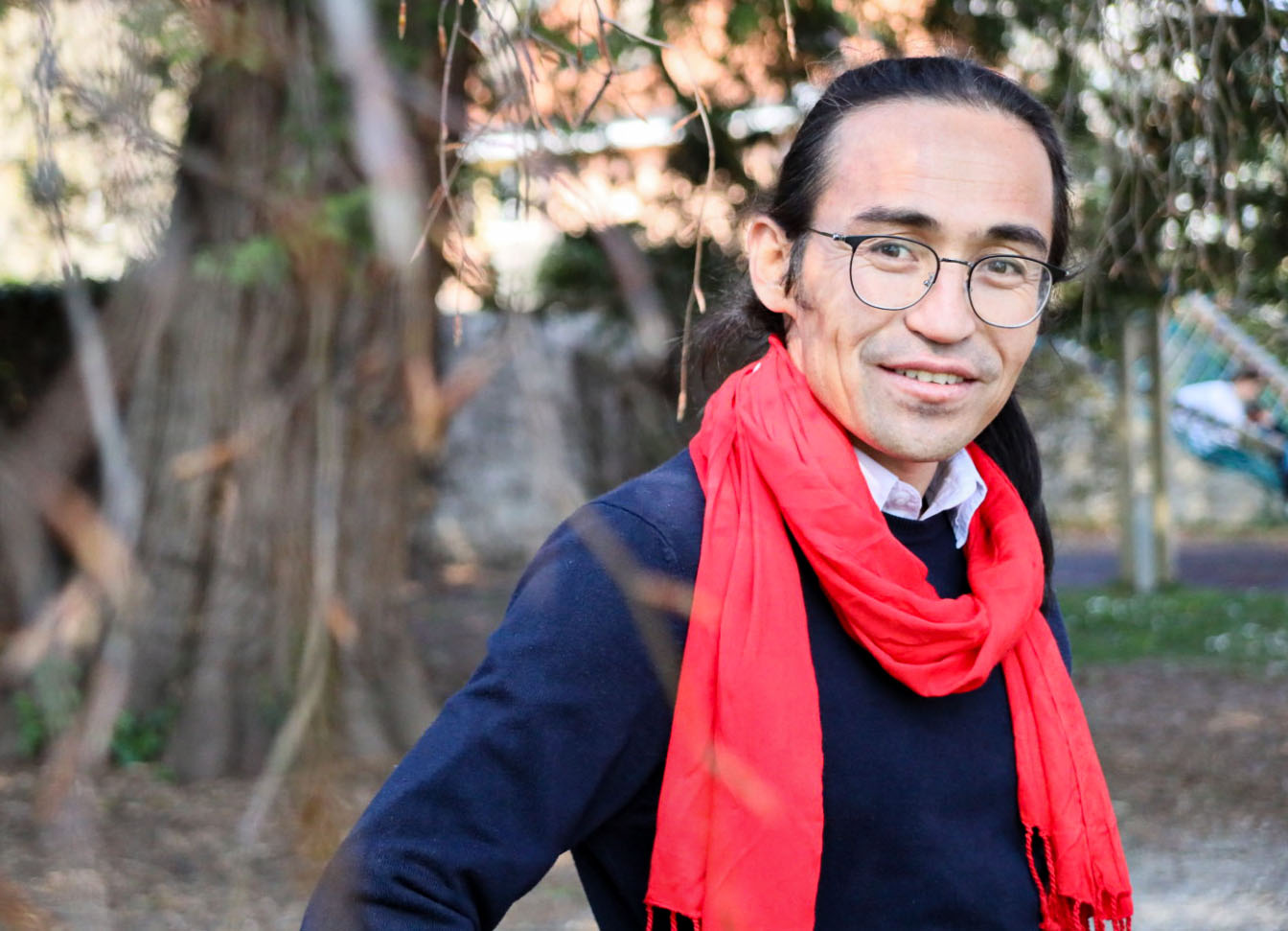
“The Taliban are scared of girls because women can challenge the legitimacy of their rule when they are educated and know their rights,” said Ehsas, who left Afghanistan in 1998 and studied Persian literature in Iran. “But they cannot stop Afghan girls, even if they close schools. [The girls] will always find other ways to learn and persevere.”
Afghan girls feel hopeless
In the 20 years between the Taliban’s first and second regimes, Afghanistan went from zero participation by girls at all school levels in 2001 to their making up 39% of primary-school pupils and more than 30% of secondary-school students by 2018.
It is precisely those who gained access to education and jobs in that period that have lost the most since the Taliban returned, said Erhard Bauer, head of delegation in Afghanistan for Swiss NGO Terre des hommes. Their sense of suffering has been compounded by a dire humanitarian situation, he added.
“On top of all [the gender discrimination], families have very real existential problems,” said Bauer, who has worked in Afghanistan for 14 years. An economic crisis has crippled the country since international donors pulled out. Women are banned from working in the public sector or for international NGOs. As for men, there are few paid jobs.
The result, said Bauer, is “desperation, depression and widespread hopelessness” seen first-hand by Terre des hommes health-support workers.
Ehsas wanted to show this grim reality in his film. But he had to overcome incredible odds to do it. Typically, student films cost CHF1,000-2,000 ($1,130-2,260) and involve a couple of student actors. Tamanna and Tabassum, which Ehsas will present as part of his studies, has cost him close to CHF20,000 and involved ten volunteer actors. After raising half of that amount through crowdfundingExternal link, for the rest he’s had to dig into his salary, earned at a part-time job at a hotel in Neuchâtel, western Switzerland.
The struggle for funds has caused several production delays, including when some associations that Ehsas declined to name promised to raise money under the banner of fighting for Afghan girls to support his project, but the money never materialised.
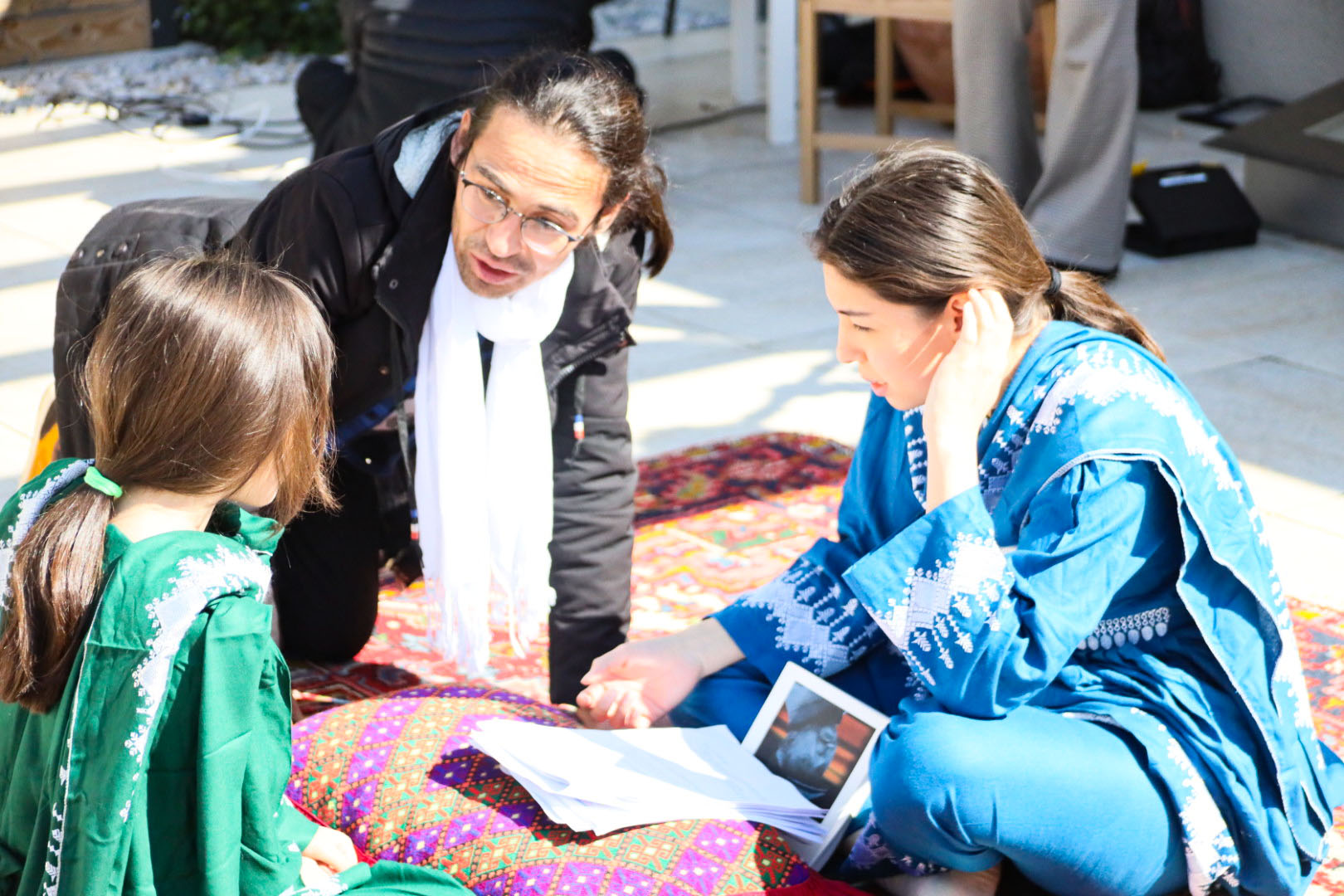
Ehsas, who directed and produced the film, also had trouble recruiting Afghan actors, but he eventually found all ten of them within Switzerland. None were professional actors but all were highly committed to the project. “When a story makes you think back to the past, to certain memories, it’s really motivating,” he said.
Underground schools in Afghanistan a form of resistance
For Ehsas, some of these memories go back to the late 1990s, when he left Afghanistan under the first Taliban regime. After living in Iran, he spent time in Syria before travelling to Turkey and was recognised as a refugee by the UN Refugee Agency. Seven years ago, he arrived in Switzerland and claimed asylum.
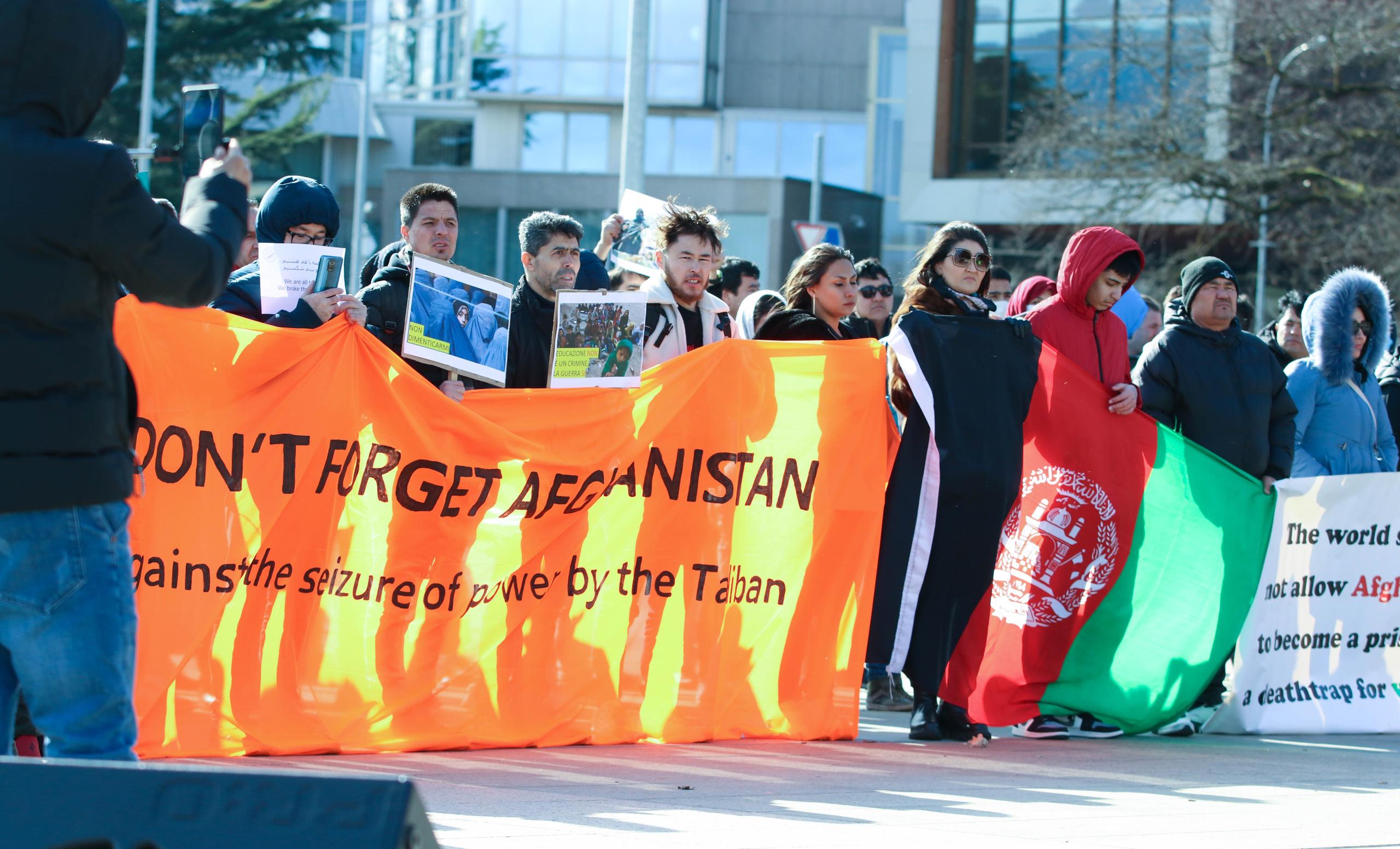
More
Why asylum in Switzerland remains elusive for Afghan refugees
Today Ehsas knows he is in a safe country while his compatriots are in a place of suffering. “I tell myself I could be in their shoes,” he said. He’s especially struck by the bravery of girls and women. Small groups of women still go out to protest, including dozens who turned up on the street after the September 2022 school attack.
To defy the limits on schooling, underground classes for girls, such as in private homes, have cropped up, but it is hard to know just how widespread they are.
“Whoever is doing it is keeping it under wraps because it’s dangerous to talk about it,” Bauer said. “The scale realistically cannot be so wide.” Nor can it replace a formal education system, he added.
Online classes have also appeared, such as the Herat Online SchoolExternal link, founded by an Afghan teacher now living in the United Kingdom. But, said Bauer, these efforts, courageous as they are, are reaching a tiny fraction of children – who first need access to the internet and a computer – in a country where 21 million people are under 18 years old.
“It’s a sign of resistance but unfortunately not more than that,” he said, given the lack of further education or work opportunities. “What happens after that? This is the big question now facing all these women who have finished their education.”
Taliban recognition ‘the one thing that scares me’
Ehsas’s film also hints at the dangers of official recognition for the Taliban, a move that Afghan women have repeatedly warned against and which no state in the world has granted so far.
“It’s the one thing that scares me,” Ehsas admitted. “Recognising the Taliban would mean destroying human rights, destroying all of humanity.”
In April the UN envoy to Afghanistan, Roza Otunbayeva, told the Taliban that recognition by the international community was “nearly impossible” so long as women and girls’ rights were curtailed.
Like many other states, Switzerland holds informal talks with the Islamist group, the Swiss foreign ministry told SWI swissinfo.ch. The rights of girls and women, it added, always feature prominently in these exchanges.
“It is a horror, this ban on girls’ education,” said Ehsas, who is now spending sleepless nights putting the finishing touches to his film. “My camera is my weapon, and I’m going to fight for these women and girls – to me, they are the true heroes.”
At the time of writing, Tamanna and Tabassum was in post-production. Once finished, Ahura Ehsas plans a screening for an audience of crowdfunding donors and the film’s cast and crew, before arranging public screenings in Geneva and Neuchâtel.
Edited by Balz Rigendinger

In compliance with the JTI standards
More: SWI swissinfo.ch certified by the Journalism Trust Initiative



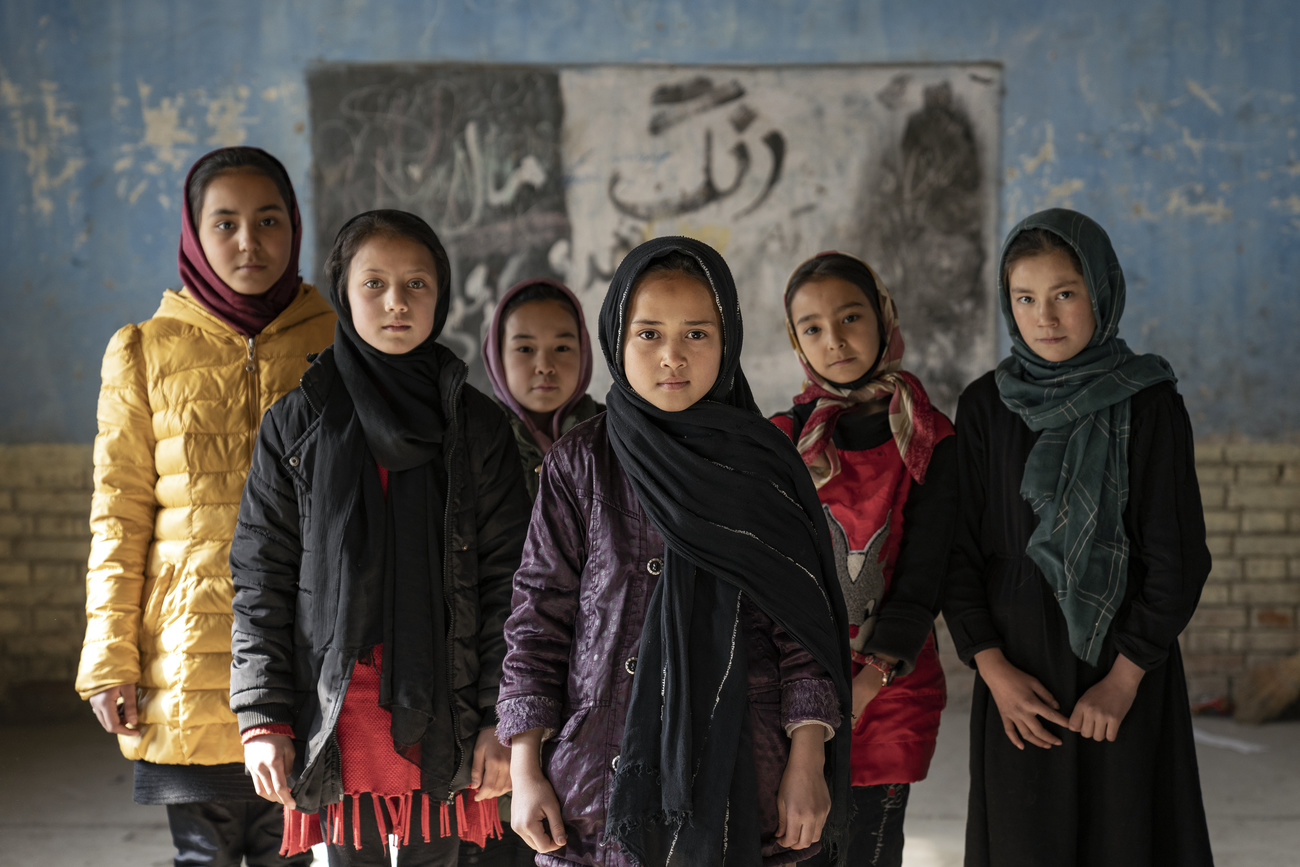
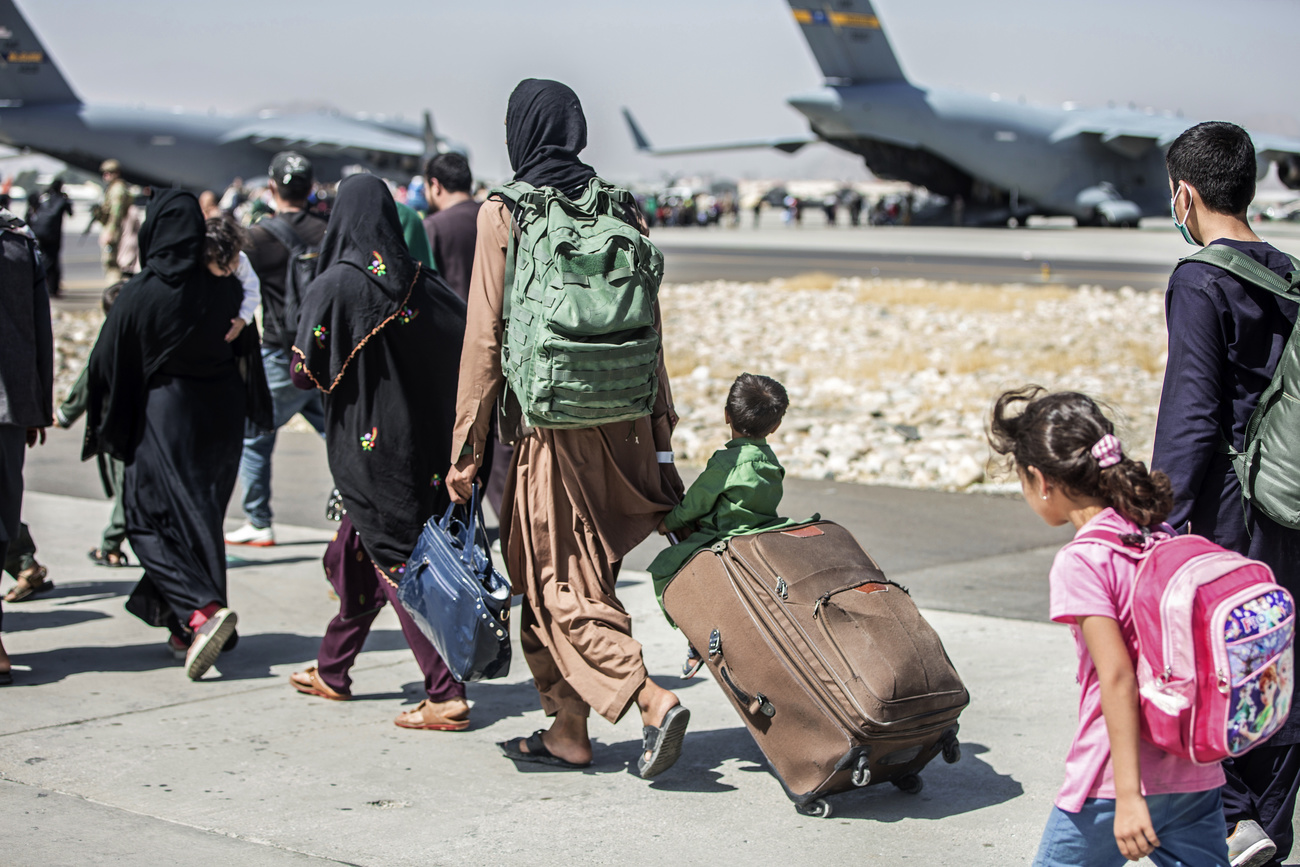
You can find an overview of ongoing debates with our journalists here . Please join us!
If you want to start a conversation about a topic raised in this article or want to report factual errors, email us at english@swissinfo.ch.